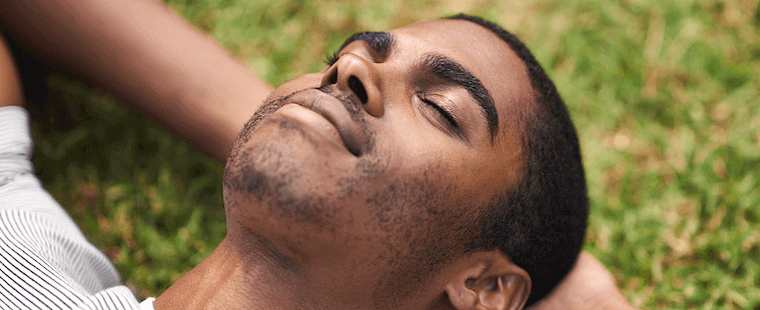如下文章来自著名领导力导师(Your Leadership Mentor™):Michael Hyatt。
I am a habitual nap-taker. I take one almost every day and have for years. I used to feel a little guilty about it—like I was slacking off or something. Then Sam Moore, my predecessor at Thomas Nelson, admitted to me he too was a napper.文章源自西贝博客-https://qinghe.me/5-reasons-why-you-should-take-a-nap-every-day.html
我有午休的习惯,每天中午休息会的习惯已经坚持了多年。曾经,我对此感到惭愧--似乎我是因此在躲避或者逃避什么似的。然而,我在托马斯·尼尔森的前辈山姆摩尔同意我午休,因为他也是个喜欢午休的人。文章源自西贝博客-https://qinghe.me/5-reasons-why-you-should-take-a-nap-every-day.html
“Every day after lunch, I lie down on the sofa in my office,” he recounted. “I hold my car keys in my right hand and let my hand hang toward the floor. When the car keys fall out of my hand, I know I’m done.” (Evidently, the famous artist Salvador Dali had a similar practice. He called it “slumber with a key.”)文章源自西贝博客-https://qinghe.me/5-reasons-why-you-should-take-a-nap-every-day.html
“每天午饭后,我躺在自己办公室的沙发上。”他说:“我左手拿着车钥匙,把手悬在地上,当车钥匙从我手里掉下去的时候,这就意味着我的午休结束了。”(无独有偶,注明画家萨尔瓦多·达利也有此癖好。他称之为:“与钥匙共眠”。)文章源自西贝博客-https://qinghe.me/5-reasons-why-you-should-take-a-nap-every-day.html
 文章源自西贝博客-https://qinghe.me/5-reasons-why-you-should-take-a-nap-every-day.html
文章源自西贝博客-https://qinghe.me/5-reasons-why-you-should-take-a-nap-every-day.html
Napping Benefits文章源自西贝博客-https://qinghe.me/5-reasons-why-you-should-take-a-nap-every-day.html
午休的益处文章源自西贝博客-https://qinghe.me/5-reasons-why-you-should-take-a-nap-every-day.html
I suggest you seriously consider taking a daily nap for the following five reasons:文章源自西贝博客-https://qinghe.me/5-reasons-why-you-should-take-a-nap-every-day.html
基于以下5个原因,我非常认真地建议你考虑下每天中午午休一会:文章源自西贝博客-https://qinghe.me/5-reasons-why-you-should-take-a-nap-every-day.html
恢复你的警觉性
A nap restores alertness.文章源自西贝博客-https://qinghe.me/5-reasons-why-you-should-take-a-nap-every-day.html
You know how your energy dips in the early afternoon? You start feeling a little sleepy and lose focus. It happens to most of us. A quick nap can bring us back up to speed.
你知道每天下午是如何消耗你的能量的吗?当你感觉到犯困或者丧失注意力的时候。这在我们大多数人之间司空见惯。一个午休可以让我们恢复元气。
The National Sleep Foundation recommends a short nap of twenty to thirty minutes “for improved alertness and performance without leaving you feeling groggy or interfering with nighttime sleep.”
国家睡眠基金会也建议我们午休20-30分钟来提高我们的警觉性,从而降低你对于身体麻醉感的感受,或者被晚间睡眠所影响。
Here’s a brief video that explains the science behind short naps. You can even maximize this benefit by drinking coffee directly before putting your head down.
这里有个短视频告诉你为什么需要午休。这甚至比你在躺下前喝咖啡都更加让你受益。
2. A nap prevents burnout.
让你远离过劳
A nap prevents burnout.
In our always-on culture, we go, go, go. However, we were not meant to race without rest. Doing so leads to stress, frustration, and burnout.
在我们的的文化里,经常是“小步快跑(因为生活节奏的的问题,大家似乎都很着急。译注)”然而,我们并不是好不休息地去参加比赛。如此,我们会感觉亚历山大,困惑不看,甚至过劳。
Taking a nap is like a system reboot. It relieves stress and gives you a fresh start.
午休诸如系统重启一样,让你释放压力,焕然一新。
Research subjects who nap show greater emotional resilience, improved cognitive function, and more. Just thirty minutes can prevent the day’s wear and tear from frying your circuits.
研究表明,小憩也可以让你有更大的情绪释放,提高你的认知能力甚至更多。仅仅三十分钟就医让你远离“电路损毁”。(这里的“wear and tear”是磨损的意思,“circuits”是电路板 ,这里作者把我们的身体比作了电路板。译注。)
午休增强知觉系统
A nap heightens sensory perception.
According to Dr. Sara C. Mednick, author of Take a Nap, Change Your Life, napping can restore the sensitivity of sight, hearing, and taste.
根据《来个午休,改变生活》的作者萨拉·C·梅德尼克博士所说,午休可以恢复你的视觉、听觉和味觉的敏感性。
Napping also improves your creativity by relaxing your mind and allowing new associations to form in it. When it came to making new connections, nappers had the edge in research done by the City University of New York.
同时,午休可以通过放松你的大脑来提高你的创造力以及这方面相互联系的能力。纽约城市大学的研究表明,有午休的习惯的人在这些方面的饿表现能力更强。
降低心脏疾病风险
A nap reduces the risk of heart disease.
Did you know those who take a midday siesta at least three times a week are 37 percent less likely to die of heart disease? Working men are 64 percent less likely! It’s true, according to a 2007 study published in the Archives of Internal Medicine.
你知道每周午休三次习惯的人比那些没有的人在心脏疾病方面的比例下降约37%吗?是真的,2007年《内科医学档案》发布的研究数据表明,职场人约64%的人没有午休的习惯。
“Taking a nap could turn out to be an important weapon in the fight against coronary mortality,” said Dimitrios Trichopoulos of the Harvard School of Public Health in Boston, who led the study.
负责这一研究的哈佛大学公共健康波士顿分校的Dimitrios Trichopoulos说:“午休是一个有效地降低冠心病发病率的重要手段。”
午休让你更具创造性
A nap makes you more productive.
The secret to becoming more productive is not managing your time; it’s managing your energy.
让你更具创造性的秘诀并非时间管理,而是管理你的精力。
Numerous studies have shown workers becoming increasingly unproductive as the day wears on. Just think of your own experience. But a 2002 Harvard University study demonstrated a thirty-minute nap boosted the performance of workers, returning their productivity to beginning-of-the-day levels.
无数研究表明职场人士丧失创造力的原因是因为过于劳累,你可以想想你过往的经历是不是这样。2002年哈佛的研究表明30分钟的休息,可以让职场人的工作效率回到早上的水平。
午休小技巧
Napping Tips
I typically take a twenty-minute nap right after lunch. If I can’t do it then, I try to squeeze it in before 4:00 p.m.
通常,我是在午饭午休的,如果这个没有办法实现,我会在下午4点前进行。
While working in a motor shop in college, I would eat lunch in my car and then lie down in the back seat. When I was CEO at Thomas Nelson, I napped in a zero gravity chair that reclined to a horizontal position. Since I now work from my home, I retreat to my bedroom and lie down in my bed.
我还记得上大学的时候在一家车行上班时,我会在午饭后车后座上休息会。成为托马斯·尼尔森的首席执行官以后,我会平躺在一把椅子上休息一会。因为现在我在家工作,午间的时候我会在床上休息会。
Here are a few practices I have found helpful.
如下是我总结的一下有用的小窍门:
- Be consistent. Try to nap at the same time every day. This helps stabilize your circadian rhythms and maximize the benefits. One easy way to do this? Schedule it.
- 定点。尝试每天的同一个时间段去午休,这有助于保持你稳定的生理节奏并使你获益最大化。最简单的办法就是,规划好!
- Keep it short. Avoid “sleep inertia,” that feeling of grogginess and disorientation that can come from awakening from a deep sleep. Long naps can also negatively impact nighttime sleep. I recommend twenty to thirty minutes tops. Set an alarm on your phone to avoid oversleeping.
- 别太长。别“沉睡”,因为那样会让你从深度睡眠中醒来时感觉昏昏沉沉的。午休时间过长会让你的晚上睡眠质量下降。我建议20-30分钟是最多的了,可以手机定个闹铃以免自己“睡过头”。
- Turn off the lights. Light acts as a cue for our bodies. Darkness communicates it is time to shut down—or go into standby mode. If you can’t turn off the lights, use a simple eye mask. I bought mine at Walgreens. Turn the lights back up to full brightness when you wake up.
- 把灯关了。灯对于我们的身体而言是个信号,黑暗告诉我们处于静止状态或者保持等候模式。如果实在没有办法关灯的话,那就戴上个眼罩吧,睡醒了的时候你会发现一个明亮的世界。
- Use a blanket. When you sleep, your metabolism falls, your breathing rate slows, and your body temperature drops slightly. Though not imperative, you will usually be more comfortable if you use a light blanket when you nap.
- 盖个毯子。睡觉的时候,你的新陈代谢就处于沉睡的状态,呼吸变慢,体温逐渐下降。盖上个毯子会让你更加舒适。
- Be discreet. Getting caught napping at your desk is not a good way to earn respect. In some old-school environments, it might even get you fired! But most people get an hour for lunch. Eat in half that time and then go snooze in your car, an unused conference room, or even a closet.
- 低调点。在自己的工位上睡觉的话不是一个好的赢得尊重的办法。在一些管理老套的公司里面,这还有可能让你被解雇,但多数人的用餐时间都是一个小时,那么,就少吃点,然后在自己的车里、不用的会议室或者休息室靠一会。
Finally, shift your own thinking about naps. People who take them are not lazy. They might just be the smartest, most productive people you know.
最后,你的午休小秘诀是什么呢?那些午休的人并不是懒惰,他们可能是最聪明且最具创造力的人。
以上内容由贝小鱼编译自MICHAEL HYATT的文章,版权归属原作者。
如需转载请于原作者联系 。
更多双语阅读文章,可以看看:



评论